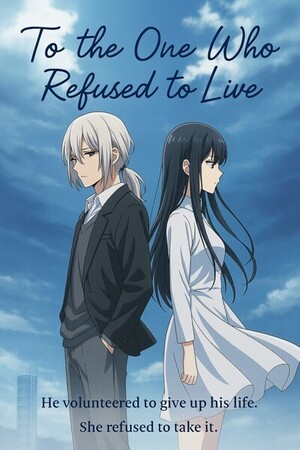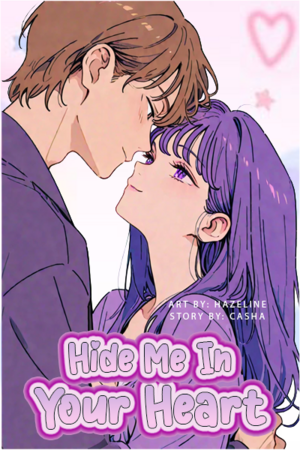Chapter 2:
The First Room
To the One Who Refused to Live
I felt hazy as I closed the door behind me. It was finally happening—the first real step toward my death. I headed straight to the bathroom, greeted by the familiar crack on the mirror, like a spiderweb frozen in time. I undressed, turned on the shower, and let the cold water run down my back.
Today marked the beginning of the end. My suffering, my distress, all of it was finally approaching a conclusion. But I didn’t feel relief. I didn’t feel anything. Just another day. Just more time passing like rusted machinery.
After drying off, I scrambled through my cluttered room for something to wear. It had been months since I dressed like a functioning member of society. After ten minutes of rummaging, I finally settled on a plain grey button-down and a faded black blazer—nothing too polished, just enough to not look like a walking tragedy—and gray slacks, creased, unflattering, but passable. Good enough for a final appointment.
I stood in front of the wardrobe mirror, finally seeing myself.
The blazer clung awkwardly to my shoulders, like it didn’t belong. The collar scratched against skin used to soft, worn cotton. I looked like someone else—someone with plans. Someone who mattered.
My hair was tied back neatly, no strands falling over my eyes, no lazy knots. Under the curtain-filtered light, the blonde strands looked almost silver. Faded.
I leaned in. My skin was sickly pale, drained. The bags under my eyes had become permanent smudges, the kind even sleep couldn't erase. My eyes, dark and lifeless, stared back.
"I’m going to die, not attend a beauty contest," I muttered. I grabbed my phone and headed out.
Kurose-san stood near the car, speaking with someone in a dark suit. His face was cold, his eyes sharp—nothing like the plastic cheer he’d shown earlier. When the man beside him noticed me, he nudged Kurose, who immediately ended the call. The cheerful mask returned.
Such an imposter.
"Ah, you’re here, Tsukihara-kun! Your blonde hair really suits you when it’s tied up like that," he said.
"Yeah. Sorry to keep you waiting," I replied, voice flat.
"Not at all. Shall we leave?"
The driver opened the door, and we slid inside.
The car rolled through the outskirts of Tokyo, where people rushed as if being chased. Glass towers turned to concrete slabs. We entered a quieter area, then approached a gated complex surrounded by high walls and cameras. Kurose flashed his ID, and the gate opened.
Inside lay a pristine campus—greenery so curated it felt artificial. Five buildings, each four stories tall, arranged around a central plaza. I stopped counting after that. Our car pulled up to the tallest building at the center, bearing the Lucent Project’s emblem—a heart with wings—carved into stone.
I stepped out. Inside, people in white coats moved briskly between rooms. One hallway held elderly patients waiting to be wheeled in. Their faces trembled with anxiety. The elevator took us to the sixth floor. I was led to a seat outside an office labeled:
SHIZUKA YATSUMARA – Licensed Counselor
"Why am I here?" I asked.
"Just a procedure," Kurose said, smiling. "It won’t take long."
His smile annoyed me. Of course it did.
After five minutes—five too many—I was called in.
The room looked like every counselor’s office I’d ever seen. Soft lighting, cream-colored walls trying to be warm. A box of tissues, untouched. A couch that probably swallowed people whole. Across the desk sat a woman with dark hair and blue eyes, glasses resting lightly on her nose. She was scrolling through her phone until she noticed me, then quickly put it down and gave me the standard therapist smile.
"Good morning, Tsukihara-kun. Please, take a seat."
I did.
She flipped through a file. My file.
"Itsuki Tsukihara. 18 years old. Graduate of Shinjuku Seihō High School. Visited twelve counselors and fourteen therapists. Am I right?"
"Yeah. Maybe. I stopped counting."
"Fair." She smiled. "I’ve read every one of those reports. Your case is... unusual."
"Isn’t it illegal to access my therapy records without permission?"
She laughed. "Normally, yes. But your case is different, isn’t it? You signed up for life transfer, which is effectively voluntary death. And when you submitted your application, you agreed to let us access relevant documents. So... no legal issues here."
She looked at me carefully.
"So, what now? Another counseling session?" I asked, bracing myself.
"No. I won’t waste our time. It’s obvious from your history that talk therapy hasn’t helped. Even Dr. Ishisaka gave up. I won’t pretend I can do better."
She leaned forward. Her glasses caught the light.
"But I will ask this—just once. Why did you really give up on life, Tsukihara-kun?"
"What do the records say?"
She flipped a page.
"Mild depressive tendencies, low self-worth from academic pressure, underdeveloped coping mechanisms, social withdrawal, unresolved adolescent grief... the usual buzzwords."
She looked up.
"But they’re wrong, aren’t they? You fooled them. Fooled trained professionals. That’s impressive."
"Then what makes you think I’ll tell you the truth?"
"I don’t."
She closed the file.
"Anyway, it was nice meeting you. A staff member will guide you to the next phase."
"Next phase?"
"Yes. We don’t take lives, Tsukihara-kun. We try to save them first. You’ll now enter a seven-day healing program."
"You know it’s a waste of time."
She smiled, folding her hands.
"Maybe. Or maybe a miracle is waiting."
She beamed. I didn’t return it.




Please sign in to leave a comment.